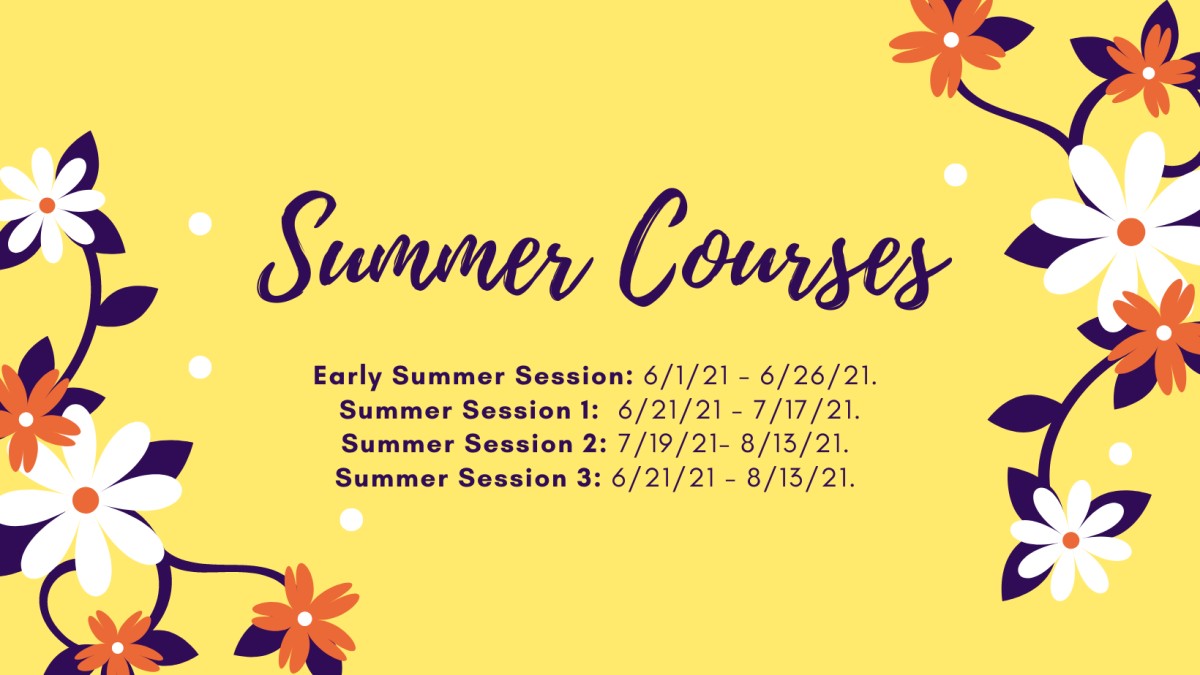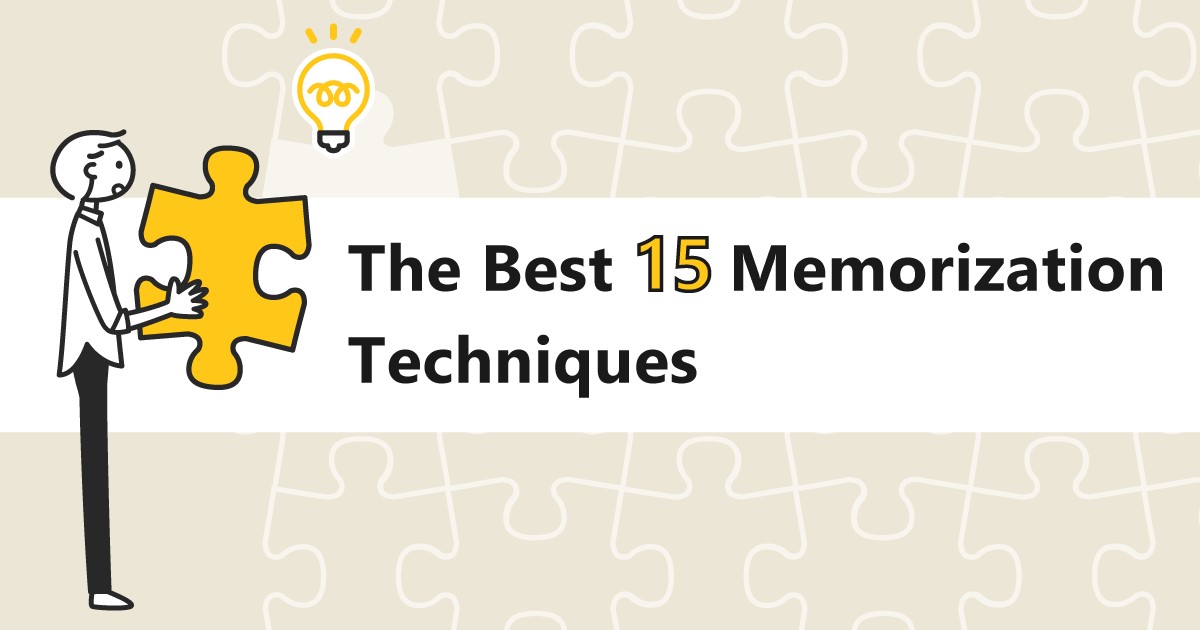LIFESTYLE
Norman Waterhouse

Introduction
Navigating the intricate landscape of real estate development requires more than just ambition and capital; it demands expert legal guidance to ensure every step aligns with the law. Enter Norman Waterhouse, a premier law firm with deep roots in real estate law, known for its robust legal services and exceptional track record. Whether you’re a seasoned developer or a property manager, understanding how Norman Waterhouse can assist you is crucial for your success.
A Brief History of Norman Waterhouse
Founded over a century ago, Norman Waterhouse has evolved into one of Australia’s most respected law firms. With a rich history that blends tradition with innovation, the firm has continuously adapted to meet the changing needs of the real estate industry. Their team of specialized attorneys brings a wealth of experience and a profound understanding of real estate law, making them invaluable allies in any property-related endeavor.
The Importance of Legal Guidance in Real Estate
Navigating the complex and potentially treacherous waters of real estate transactions requires skilled legal oversight. Whether dealing with intricate development projects or tenant agreements, the expertise of a seasoned legal team like Norman Waterhouse can be the difference between success and costly failure. Below, we explore the critical areas that demand attentive legal guidance in the realm of real estate.
Risk Management
One of the most crucial aspects of any real estate transaction is identifying and mitigating risks. Legal professionals conduct thorough due diligence, uncovering potential legal pitfalls that could jeopardize the project. From zoning laws and environmental regulations to title disputes, having a knowledgeable attorney can save significant time and resources by addressing issues proactively.
Contract Negotiation
Contracts are the backbone of real estate deals, encompassing agreements between buyers, sellers, contractors, and tenants. Skilled negotiation ensures that these contracts are fair, binding, and enforceable. Norman Waterhouse attorneys excel in drafting and reviewing contracts, ensuring that all terms are clearly defined and legally sound to protect your interests.
Regulatory Compliance
Real estate development is subject to a myriad of local, state, and federal regulations. Compliance is non-negotiable and often complex, involving everything from building codes to taxation. Legal experts provide the necessary guidance to navigate these regulations seamlessly, preventing legal disputes and keeping projects on track.
Dispute Resolution
Despite best efforts, disputes may arise in any real estate venture. Whether it’s a breach of contract or a landlord-tenant disagreement, having a competent legal team is crucial. Norman Waterhouse offers robust dispute resolution services, including mediation, arbitration, and litigation, ensuring that any conflicts are resolved efficiently and favorably.
By partnering with Norman Waterhouse, clients gain access to a wealth of legal expertise that is indispensable for navigating the multifaceted challenges of the real estate industry. Their comprehensive services offer peace of mind and a solid foundation for your real estate success.
Navigating Legal Complexities
Real estate development and property management are fraught with legal complexities, from zoning laws and environmental regulations to contract negotiations and dispute resolutions. Without expert legal guidance, even the most well-intentioned project can encounter insurmountable obstacles. Legal advisors like those at Norman Waterhouse play a critical role in navigating these complexities, ensuring compliance and mitigating risks.
Protecting Your Investments
Real estate developments often involve substantial financial investments. Legal missteps can lead to costly delays, fines, or litigation. A proficient real estate lawyer ensures that all legal aspects of your project are handled meticulously, safeguarding your investment and enhancing the likelihood of successful outcomes.
Services Offered by Norman Waterhouse
Real Estate Transactions
Norman Waterhouse provides expert legal assistance in all types of real estate transactions. From the initial purchase agreement to the final closing, their attorneys ensure every detail is meticulously managed. This includes conducting thorough due diligence, drafting and reviewing contracts, and addressing any potential legal issues promptly.
Development and Construction
The firm’s expertise extends to the intricacies of real estate development and construction. They assist clients in navigating zoning laws, obtaining necessary permits, and complying with local, state, and federal regulations. Their proactive approach helps to mitigate risks and avoid costly delays, ensuring projects progress smoothly.
Leasing and Property Management
Norman Waterhouse offers comprehensive services in leasing and property management. They help draft and review lease agreements, manage tenant relations, and address any disputes that arise. Their goal is to protect property owners’ interests and ensure compliance with all relevant laws and regulations.
Dispute Resolution and Litigation
When disputes arise, Norman Waterhouse provides robust dispute resolution and litigation services. Their attorneys are skilled in mediation, arbitration, and, when necessary, litigation. They focus on achieving favorable outcomes efficiently, minimizing disruptions to clients’ real estate ventures.
Environmental and Regulatory Compliance
Compliance with environmental laws and regulations is crucial for real estate projects. Norman Waterhouse’s legal team assists clients in understanding and adhering to environmental regulations, ensuring that projects are environmentally sound and compliant with all regulatory requirements.
Your Partner in Real Estate Success
Norman Waterhouse’s comprehensive range of services underscores their commitment to client success. Their legal expertise provides the foundation for navigating the complex and ever-evolving real estate landscape, protecting investments, and ensuring the smooth execution of property-related endeavors. Partnering with Norman Waterhouse means having a trusted ally dedicated to achieving your real estate goals.
Property Development and Planning
Norman Waterhouse’s expertise in property development and planning is unmatched. They assist clients from the initial stages of planning through to project completion, ensuring that all legal requirements are met. Their services include:
- Land acquisition and due diligence: Thoroughly vetting potential sites to identify any legal issues.
- Planning and zoning: Navigating local planning laws to obtain necessary approvals.
- Environmental compliance: Ensuring projects meet all environmental regulations.
Leasing and Transaction Services
Norman Waterhouse offers comprehensive leasing services, representing both landlords and tenants in commercial, retail, and industrial leasing transactions. Their services encompass:
- Lease drafting and negotiation: Crafting clear, enforceable lease agreements that protect your interests.
- Lease disputes: Resolving conflicts between landlords and tenants efficiently.
- Transactional support: Handling the legal aspects of property sales and acquisitions.
Dispute Resolution
Conflict is an inevitable part of real estate, but it doesn’t have to derail your project. Norman Waterhouse excels in dispute resolution, offering services such as:
- Mediation and arbitration: Facilitating fair and amicable settlements.
- Litigation: Representing clients in court to resolve complex legal disputes.
- Contract disputes: Addressing breaches of contract and other contractual issues.
Case Studies and Success Stories
Transforming Brownfield Sites into Valuable Assets
One of Norman Waterhouse’s standout success stories involves transforming contaminated brownfield sites into thriving commercial hubs. By navigating environmental regulations and securing necessary permits, the firm helped clients redevelop previously unusable land, creating economic opportunities and revitalizing communities.
Successful Resolution of Complex Zoning Disputes
A client faced significant delays due to complex zoning disputes with local authorities. Norman Waterhouse’s litigation team intervened, effectively mediating between the parties and achieving a favourable resolution. The project continued without further setbacks, saving the client substantial time and money.
High-Stakes Real Estate Acquisition
In a high-stakes real estate acquisition worth millions, Norman Waterhouse provided critical legal oversight. The team conducted exhaustive due diligence, identified potential legal pitfalls, and ensured compliance with all regulations. The transaction was completed seamlessly, resulting in a lucrative investment for the client.
Streamlined Leasing Operations for Major Retailer
A major retailer engaged Norman Waterhouse to streamline its leasing operations across multiple locations. The firm’s experts drafted and negotiated lease agreements, managed tenant relationships, and handled disputes efficiently. This comprehensive approach led to a more consistent and profitable leasing process.
Environmental Compliance in Large-Scale Developments
Norman Waterhouse assisted a client with environmental compliance for a large-scale residential development. By conducting thorough environmental assessments and ensuring adherence to all regulations, the project was completed without legal complications, establishing a new standard for eco-friendly construction.
Landmark Development in Adelaide
One of Norman Waterhouse’s most notable success stories involves their legal guidance on a landmark development project in Adelaide. The project faced numerous challenges, including zoning restrictions and community opposition. Thanks to the firm’s strategic legal advice and negotiation skills, the developers secured the necessary approvals and successfully completed the project, which now stands as a testament to their expertise.
Resolving a Major Leasing Dispute
Another example of Norman Waterhouse’s prowess is their handling of a major leasing dispute between a prominent commercial landlord and a multinational tenant. The conflict threatened to escalate into a prolonged legal battle, but the firm’s adept negotiation facilitated a favorable settlement for both parties, preserving their professional relationship and avoiding costly litigation.
Tips for Choosing a Real Estate Lawyer
Selecting the right real estate lawyer is crucial for ensuring the success and smooth operation of any property-related endeavor. Here are some essential tips to consider:
Experience and Specialization
When choosing a real estate lawyer, it’s vital to prioritize experience and specialization. Look for attorneys who have a proven track record in dealing with real estate transactions and disputes. Specialization in real estate law will ensure that they are well-versed in the complexities and nuances of the field.
Reputation and References
Research the lawyer’s reputation within the industry. Seek recommendations from colleagues, real estate agents, or financial advisors. Additionally, ask the lawyer for references from past clients to get an idea of their success rate and client satisfaction.
Communication and Availability
Effective communication is key in legal matters. Ensure that the lawyer you choose is accessible and responds promptly to inquiries. They should be able to explain complex legal terms and processes in a way that you can understand, fostering a transparent relationship.
Fee Structure
Understanding the fee structure before engaging a lawyer is essential. Some may charge a flat fee, while others work on an hourly basis. Make sure to discuss all potential costs upfront to avoid any surprises later on. Choose a lawyer whose fees align with your budget and the scope of your project.
Local Knowledge
Real estate laws can vary significantly based on location. It’s advantageous to select a lawyer knowledgeable about local regulations and who has experience dealing with local authorities. This local insight can be invaluable, especially for navigating zoning laws and obtaining necessary permits.
By following these tips, you can improve the chances of selecting a real estate lawyer who will effectively safeguard your interests and contribute to the success of your real estate projects.
Expertise in Real Estate Law
When selecting legal representation, prioritize firms with a proven track record in real estate law. Look for attorneys who specialize in property-related matters and have extensive experience in your specific area of interest.
Local Knowledge
Real estate laws and regulations can vary significantly by location. Choose a firm with in-depth knowledge of local laws and a strong presence in the area where your project is situated. Norman Waterhouse’s deep ties to the Australian real estate market make them particularly well-suited for local projects.
Client Testimonials and Referrals
Client testimonials and referrals provide valuable insights into a firm’s capabilities and reputation. Seek out feedback from past clients to gauge their satisfaction and the firm’s ability to deliver results. Norman Waterhouse’s long list of satisfied clients speaks volumes about their reliability and expertise.
Conclusion and Call to Action
In the ever-evolving world of real estate, the importance of expert legal guidance cannot be overstated. Norman Waterhouse stands out as a trusted partner, offering comprehensive legal services that cover every aspect of property development and management. From initial planning and acquisition to leasing and dispute resolution, their team is equipped to handle all your legal needs.
If you’re a real estate developer or property manager looking to navigate the complexities of real estate law with confidence, don’t hesitate to reach out to Norman Waterhouse. Contact them today to learn more about how their expertise can benefit your next project.
More: Understanding Aoomaal: A Comprehensive Guide
FAQs
What are the main areas of real estate law covered by Norman Waterhouse?
Norman Waterhouse provides legal services across a wide range of real estate matters, including property acquisition, leasing, zoning and planning, environmental compliance, dispute resolution, and large-scale development projects.
How do I get started with Norman Waterhouse for my real estate project?
To get started, simply contact Norman Waterhouse through their website or give them a call. Their team will discuss your project, understand your needs, and outline the next steps for collaboration.
What sets Norman Waterhouse apart from other real estate law firms?
Norman Waterhouse’s extensive experience, local knowledge, and proven track record in the Australian real estate market distinguish them from other firms. Their bespoke approach ensures that each client receives tailored legal solutions that address their unique requirements.
Does Norman Waterhouse handle both commercial and residential real estate matters?
Yes, Norman Waterhouse offers legal services for both commercial and residential real estate projects. Their expertise extends to all aspects of property development and management, regardless of the type or scale of the project.
Can Norman Waterhouse assist with environmental compliance in real estate projects?
Absolutely, Norman Waterhouse has a strong track record in assisting clients with environmental compliance. They conduct thorough assessments and ensure adherence to all relevant regulations to facilitate eco-friendly and legally sound developments.
What is the typical fee structure for Norman Waterhouse’s services?
The fee structure can vary depending on the complexity and scope of the project. Norman Waterhouse offers flexible fee arrangements that include flat fees and hourly billing. It is recommended to discuss all potential costs upfront with their team.
How important is local knowledge in real estate law?
Local knowledge is crucial in real estate law, as regulations can vary significantly based on location. Norman Waterhouse’s deep understanding of local laws and their relationships with local authorities allow them to navigate regional regulations effectively, ensuring smooth project execution.
LIFESTYLE
Empowering Women’s Safety: Practical Tips for Concealed Carry

The Benefits of Concealed Carry for Women
The ability to carry a concealed weapon can provide women with a heightened sense of security and self-reliance. Whether walking alone at night, traveling to unfamiliar areas, or simply navigating daily routines, having this option can be a crucial factor in enhancing personal safety. For many women, the psychological comfort that comes with being prepared can be just as important as the physical protection a weapon offers.
Choosing the right thigh holster womens can offer a discreet and comfortable way to keep a weapon accessible, further increasing confidence in diverse situations. This type of holster is particularly advantageous under skirts or dresses, providing easy access while staying hidden from view.
Different Concealed Carry Options
When it comes to concealed carry, women have a variety of effective options to choose from, each with its own set of advantages:
- Thigh Holsters: Specifically designed for wear under skirts or dresses, thigh holsters provide easy access to the firearm while remaining out of sight. They’re an excellent choice for formal occasions or for those who prefer not to wear belts.
- Belly Bands: These versatile and comfortable holsters can be worn under various clothing types. Belly bands offer multiple pockets for firearms and accessories, making them suitable for casual and athletic wear.
- Concealed Carry Purses: Designed with dedicated compartments for firearms, these purses allow for quick and easy access. They come in various styles to match everyday fashion while ensuring safety and preparedness.
The right option depends on personal preference, lifestyle, and daily activities. When choosing the best method for carrying a concealed weapon, comfort, ease of access, and concealability must be considered.
Importance of Training and Practice
Training and regular practice are essential when carrying a concealed weapon. These practices ensure personal safety and the safety of others in the vicinity. Proper training can distinguish between a confident, prepared individual and one who is unsure or hesitant in a critical situation. Programs like those offered by the US Concealed Carry Association provide comprehensive training on firearm handling, safe storage, and legal considerations.
Key elements to focus on during training include:
- Proper Handling: Learning the correct way to draw, aim, and fire a weapon is crucial. This includes understanding the mechanics of the firearm and practicing safe handling techniques.
- Safe Storage: Knowing how to securely store a firearm when unused is vital for preventing accidents or unauthorized access.
- Legal Regulations: Being aware of the laws and regulations in your area helps ensure compliance and avoids legal issues.
Continual practice reinforces muscle memory, making it easier to react effectively in high-stress situations. Regular visits to the shooting range and participation in training sessions can maintain and improve your skills over time.
Legal Considerations
Understanding the laws regarding concealed carry in your state is vital. Regulations vary significantly across states, and being well-informed is the first step to responsible firearm ownership. Always stay updated on the legal requirements in your area, as misunderstandings or ignorance can lead to serious consequences.
Resources like the NRA-ILA provide detailed information about state-specific gun laws. This ensures you remain compliant with current legislation and understand your rights and responsibilities as a concealed carry permit holder. Familiarize yourself with topics such as where you can legally carry your weapon, any necessary permits, and situations that may require you to disclose your concealed status to law enforcement.
Choosing the Right Concealed Carry Apparel
Comfort and accessibility are key when selecting concealed-carry apparel. The ideal clothing should provide easy access to the weapon without sacrificing style or comfort. Many options are tailored for women, addressing unique needs and preferences while offering practicality and style.
Look for moisture-wicking fabrics, adjustable straps, and designs that maintain a low profile to ensure the concealed weapon does not create noticeable bulges under clothing. The right apparel can make a significant difference, enhancing the wearer’s comfort and the effectiveness of the concealed carry method.
Investing in high-quality apparel designed for concealed carry can pay off in terms of comfort, confidence, and readiness. It is worth considering items that offer additional compartments or features designed to enhance safety and convenience.
LIFESTYLE
Internal Summer Study Courses Meaning

The Meaning and Impact of Internal Summer Study Courses for Personal Growth
As the long days of summer stretch out before us, they bring not only warmth and leisure but also an opportunity for growth and development. For many, summer is synonymous with vacations, relaxation, and a break from the usual routine. However, it also presents a unique opportunity to engage in internal summer study courses—structured programs or self-guided learning endeavors designed to foster personal growth, reflection, and skill development. But what do these courses truly mean for us as humans, and how do they impact our lives?
The Concept of Internal Summer Study
Internal summer study courses go beyond traditional academic learning. While they can include formal classes, they often focus on personal enrichment, self-discovery, and the cultivation of new skills. These courses can take many forms: online workshops, self-paced study plans, or even reflective practices like journaling, meditation, or creative projects. The “internal” aspect emphasizes that the growth these courses foster is deeply personal, affecting not just intellectual capacities but emotional and psychological well-being as well.
A Time for Reflection and Renewal
Summer, with its slower pace and often more flexible schedules, is an ideal time for introspection. Internal summer study courses provide a structured way to engage in this reflection. Whether it’s learning a new language, diving deep into a philosophical text, or exploring mindfulness techniques, these courses encourage individuals to pause, look inward, and assess their goals, values, and desires. This period of reflection can lead to profound insights and a renewed sense of purpose.
Building Resilience and Adaptability
In a rapidly changing world, the ability to adapt and grow is crucial. Internal summer study courses can help build resilience by challenging individuals to step outside their comfort zones. Engaging in new learning experiences fosters a growth mindset—the belief that abilities and intelligence can be developed with effort and practice. This mindset not only enhances problem-solving skills but also prepares individuals to face challenges with confidence and creativity.
Enhancing Emotional Intelligence
One of the most significant benefits of internal summer study is the enhancement of emotional intelligence (EQ). EQ involves the ability to recognize, understand, and manage our own emotions, as well as to empathize with others. Courses that focus on self-awareness, empathy, communication, and relationship-building can significantly improve emotional intelligence. As individuals become more attuned to their own emotions and the emotions of others, they are better equipped to navigate personal and professional relationships, leading to more fulfilling and harmonious lives.
Cultivating Lifelong Learning
The habit of lifelong learning is a powerful tool for personal and professional success. Internal summer study courses instill a love for learning that extends beyond formal education. By pursuing knowledge and skills that align with personal interests and passions, individuals cultivate a sense of curiosity and a desire for continuous growth. This habit of lifelong learning not only keeps the mind sharp but also enriches life by opening up new opportunities and experiences.
Fostering Creativity and Innovation
Creativity is often sparked when the mind is allowed to wander, experiment, and explore new ideas. Internal summer study courses, particularly those that involve artistic or creative pursuits, provide the space and freedom to innovate. Whether it’s through writing, painting, music, or other forms of creative expression, these courses encourage individuals to tap into their imagination and think outside the box. This creative exploration can lead to innovative solutions to problems and a deeper understanding of oneself.
Strengthening Self-Discipline and Focus
Engaging in internal summer study requires a certain level of self-discipline and focus, especially when the learning is self-directed. Setting goals, managing time effectively, and staying committed to a study plan are all essential components of success. These skills are not only valuable for completing the course but are also transferable to other areas of life. The discipline and focus developed through summer study can improve productivity, enhance decision-making, and lead to a greater sense of achievement.
Learn more such informative blogs on website
Conclusion: A Pathway to Personal Fulfillment
Internal summer study courses offer more than just knowledge or skills; they provide a pathway to personal fulfillment. By engaging in reflective and purposeful learning, individuals can gain a deeper understanding of themselves, develop essential life skills, and cultivate a mindset of growth and resilience. As we embrace the opportunities that summer brings, internal study courses remind us that the journey of self-discovery and improvement is continuous, enriching, and deeply meaningful.
In a world that often values external achievements and accolades, internal summer study courses offer a refreshing reminder that true growth and fulfillment come from within. By dedicating time to our personal development during the summer months, we invest in our future selves, creating a foundation for a life of purpose, creativity, and well-being.
LIFESTYLE
Memory Techniques:15 Best Techniques

Mastering Memory: Techniques to Enhance Your Cognitive Recall

In our fast-paced, information-saturated world, having a robust memory is more crucial than ever. Whether you’re a student, professional, or lifelong learner, improving memory can enhance both personal and professional life. Here’s a look at several effective memory techniques:
Mental Exercises
Engaging in various mental exercises can sharpen your memory. Consider activities such as:
- Puzzles and Games: Engage in activities like crossword puzzles, Sudoku, or strategy games to challenge your brain.
- Learning New Skills: Take up a new hobby or skill, such as learning a musical instrument or a new language, to keep your brain engaged and flexible.
Visualization
Visualization leverages your brain’s ability to recall images. This technique involves creating vivid, memorable images related to the information you want to remember. For example, to remember a grocery list, you might imagine a giant, talking banana in a supermarket.
The Method of Loci
This ancient technique involves associating the information you want to remember with specific physical locations. Imagine walking through a familiar place and “placing” pieces of information in different spots. When you need to recall the information, you mentally walk through that space and retrieve the data associated with each location.
Spaced Repetition
Spaced repetition is based on the principle that we remember information better when we review it at increasing intervals over time. Tools like Anki or Quizlet can automate this process by scheduling reviews of material just before you’re likely to forget it.
Elaborative Rehearsal
Elaborative rehearsal involves making information more meaningful by relating it to what you already know. For instance, when learning a new concept, try to connect it to something familiar or create a story around it. This deeper processing helps improve retention.
Active Learning
Active learning engages your brain more than passive reading. Techniques include:
- Self-testing: Regularly quiz yourself on the material you’re trying to learn. This not only assesses your knowledge but also reinforces it.
- Teaching others: Explain what you’ve learned to someone else. Teaching forces you to process and organize information, which enhances your understanding and recall.
Healthy Lifestyle
A well-balanced lifestyle supports cognitive function. Key aspects include:
- Sleep: Adequate sleep is essential for memory consolidation. Aim for 7-9 hours per night to ensure your brain processes and stores new information effectively.
- Nutrition: A diet rich in antioxidants, healthy fats, and proteins supports brain health. Foods like blueberries, walnuts, and fish are particularly beneficial.
- Exercise: Regular physical activity increases blood flow to the brain, which can improve cognitive function and memory.
Mindfulness and Stress Management
Chronic stress and anxiety can impair memory. Techniques such as mindfulness meditation, deep breathing exercises, and regular relaxation can help manage stress levels and enhance cognitive function.
By incorporating these techniques into your daily routine, you can significantly improve your memory and cognitive abilities. Experiment with different methods to find what works best for you, and remember that consistency is key in making these techniques effective.
Attention and Focus
Memory relies heavily on attention. Improving your focus can significantly enhance your ability to remember information. Techniques to boost attention include:
- Minimizing Distractions: Create a conducive environment for learning by reducing noise, turning off notifications, and setting specific times for study or work.
- Mindfulness Practices: Mindfulness exercises can help train your brain to stay focused and present. Techniques such as single-tasking and regular mindfulness meditation can improve concentration.
Using Technology Wisely
Modern technology offers various tools to support memory enhancement:
- Apps and Software: Tools like Evernote or Microsoft OneNote help organize and manage information efficiently. Memory apps like Memrise or BrainHQ provide interactive exercises designed to improve recall.
- Digital Reminders: Utilize calendar apps and reminder features on your phone to keep track of tasks and deadlines. This reduces cognitive load, allowing you to focus on more complex memory tasks.
Regular Review and Practice
Consistent practice and review are essential for reinforcing memory. Regularly revisit material you’ve learned to keep it fresh in your mind. Techniques like spaced repetition, mentioned earlier, are particularly effective for this purpose.
Healthy Social Interaction
Engaging in social activities can stimulate mental function and improve memory. Socializing requires cognitive effort and can enhance mental agility. Join groups, attend seminars, or participate in discussions to keep your brain active.
Establishing Routine and Organization
Developing a consistent routine can help with memory recall. Use organizational tools such as to-do lists, planners, and organizational apps to keep track of important information and deadlines. This can reduce the cognitive load associated with managing multiple tasks.
Understanding Your Learning Style
Different people have different learning preferences. Understanding whether you are a visual, auditory, or kinesthetic learner can help tailor your memory techniques to your style. For example:
- Visual Learners: Use diagrams, charts, and visual aids.
- Auditory Learners: Engage in discussions, listen to recordings, or use mnemonic rhymes.
- Kinesthetic Learners: Incorporate hands-on activities or physical movement in learning. You can learn more about memory techniques
Conclusion
Enhancing memory is a multifaceted process that involves various techniques and lifestyle adjustments. By incorporating mnemonic devices, visualization, spaced repetition, and other strategies into your daily routine, you can significantly improve your ability to recall information. Combining these techniques with a healthy lifestyle and regular mental exercise will help you maintain and enhance your cognitive abilities over time.
Remember, improvement in memory requires practice and persistence. Experiment with different methods to find what works best for you and stay consistent in your efforts. With dedication and the right techniques, you can master the art of memory and unlock your full cognitive potential.
-

 TECHNOLOGY11 months ago
TECHNOLOGY11 months agoHow To Anonymously View Instagram Stories Using 5 Methods
-

 LIFESTYLE1 year ago
LIFESTYLE1 year agoIt is not wisdom but authority that makes a law. T – Tymoff
-

 Blog1 year ago
Blog1 year agoWordhippo 5 Letter Words – Everything You Need to Know
-

 ENTERTAINMENT1 year ago
ENTERTAINMENT1 year agoUnveiling the Life of Mary Joan Martelly: A Comprehensive Biography
-

 BUSINESS1 year ago
BUSINESS1 year agoSavvy Shopping Guide: Finding and Using Online Rebates & Offers Like a Pro
-

 TECHNOLOGY1 year ago
TECHNOLOGY1 year agoWhat is 4chan Trash : Every Thing You Need To Know
-

 WORKING HOURS11 months ago
WORKING HOURS11 months agoLearn How To Learn Faster: Top 10 Techniques
-

 TECHNOLOGY1 year ago
TECHNOLOGY1 year agoTANZOHUB: REVOLUTIONIZING YOUR DIGITAL EXPERIENCE





